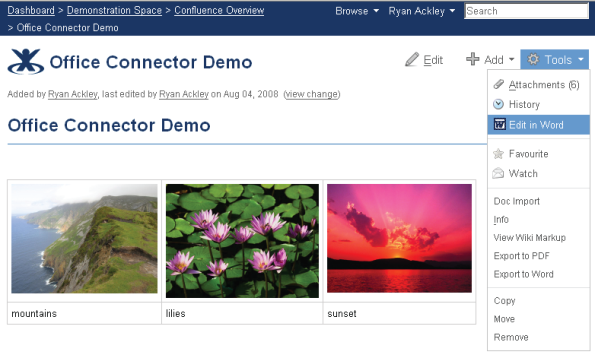ReadWriteWeb is a partner with Defrag, a conference about web innovation. Defrag’s Eric Norlin has lately been blogging about enterprises and organizations starting to move beyond mere ‘cost containment’ (although that’s still a big driver) and into using web technologies to boost productivity. Eric points out that “taming the data” is one of the challenges of this shift, because there is so much information online which workers need to process. And it’s not just taming the data, but gleaning ‘intelligence’ from it. He mentions a number of buzzwords: enterprise 2.0, semantic web, business intelligence. Eric’s main point is that this space is wide open for innovation – going beyond Webex, social networks and so on.

Part of the problem in the enterprise/business market is the predominance of big, bulky software from large IT vendors such as Microsoft, IBM, Cisco and Oracle. Although most of those companies are slowly evolving into offering web-based software (Cisco owns Webex for example), it tends to be slow progress from all the bigcos except for Google. But nowadays we’re seeing startups making a significant impact in the enterprise. There are two main ways this is happening…
One is through integration. For example this week Atlassian announced Microsoft Office and SharePoint integration in the latest release of their enterprise wiki solution Confluence. As we reported, this means that users no longer need to know the technicalities of using wikis (which has long been a factor in wikis not being adopted en masse in the enterprise), Confluence users can now use Microsoft Word. This will clearly boost productivity and usage of wikis, which in turn makes knowledge management easier to manage in organzations.

The other way startups are adding innovation to the enterprise is through new types of products that are tackling problems such as information overload. An example that we’ve been wanting to mention for a while now is Cognition Technologies, which is licensing its semantic web technologies to various organizations. Cognition’s Natural Language Processing (NLP) technology is being used for a number of different applications, from health to law. While not so much enterprise at this time, it’s easy to see how Cognition’s technology could be used to filter information where ever there is a large data set – which is many businesses these days.
Graphic from Cognition’s website

What other startups and products have you noticed lately that are tackling the ‘info overload’ problem – and so boosting productivity – in organizations?
Defrag is being held November 3-4 in Denver, Colorado. You can register for Defrag here. Entering the code “rww1” will get RWW readers $100 off of the early bird price, which ends this Friday.

















